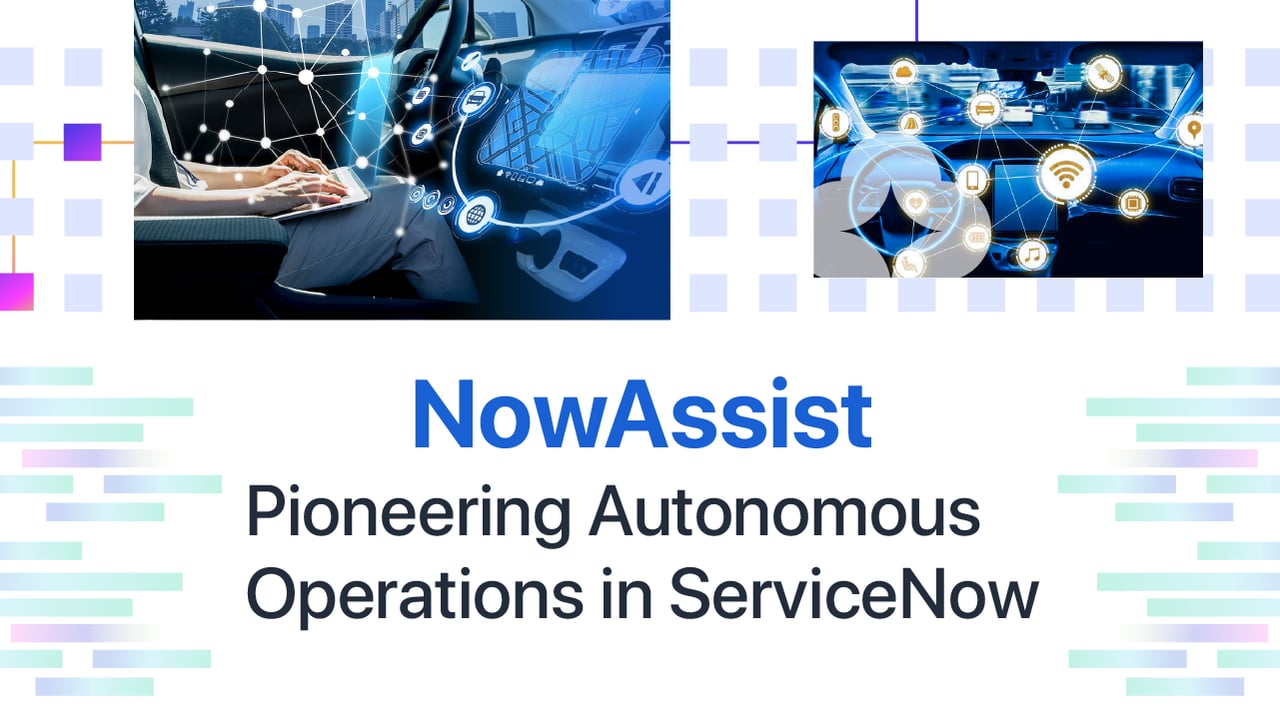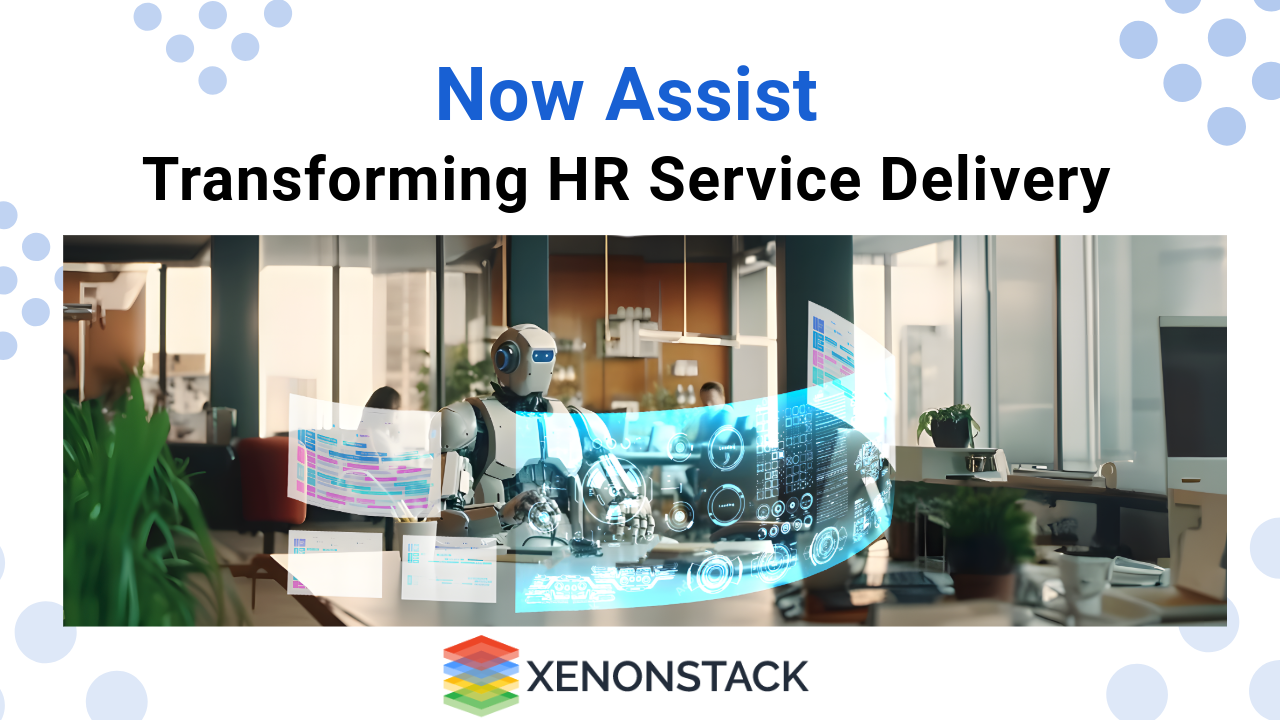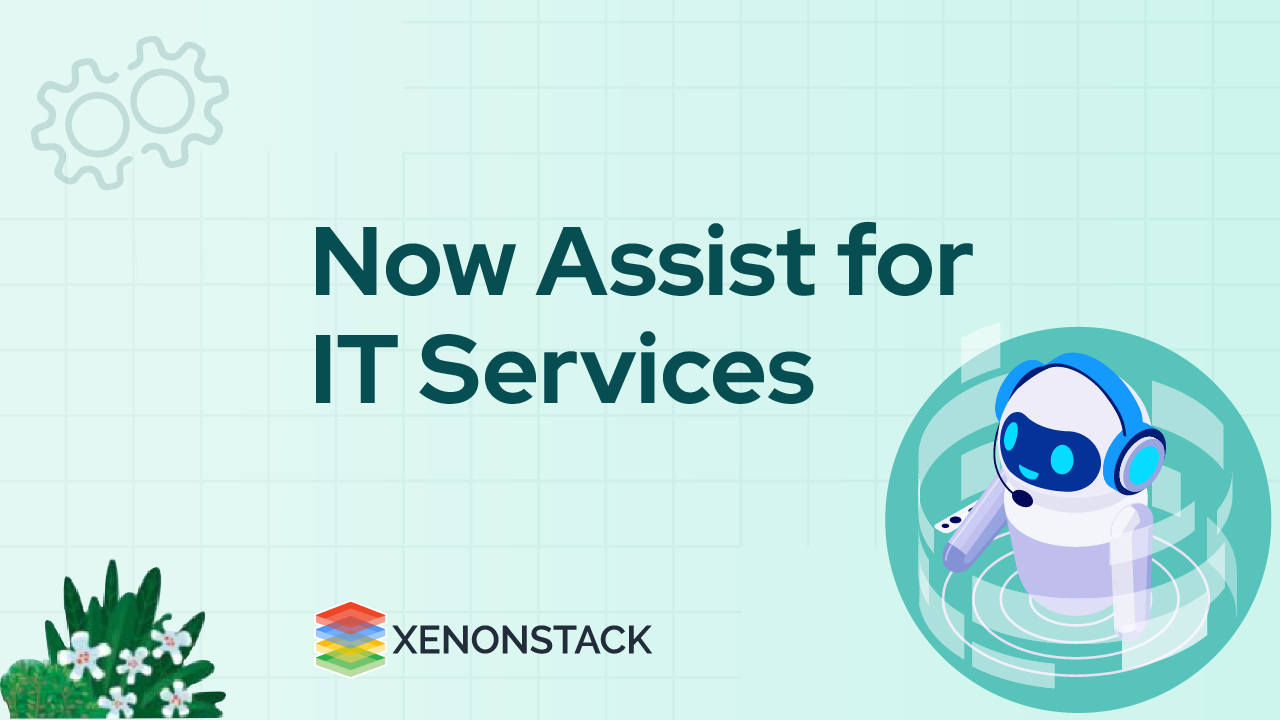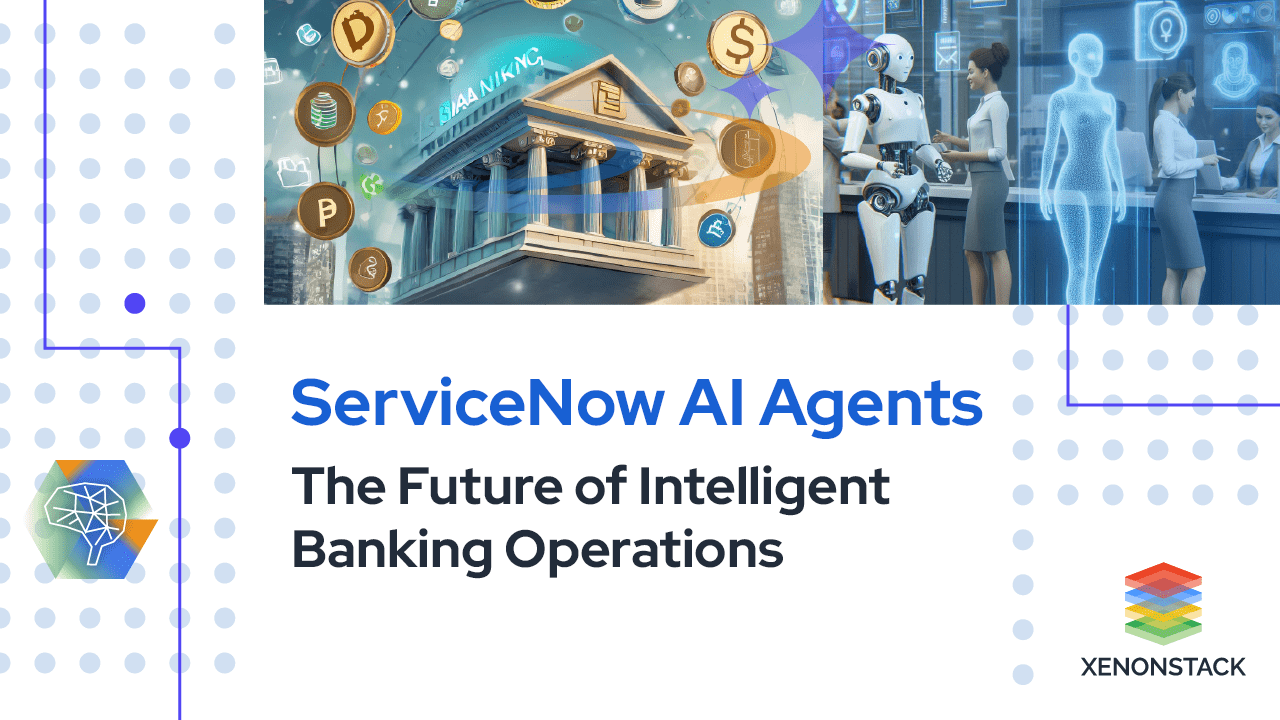
ServiceNow Autonomous Agents for Autonomous Service Operations
In the rapidly evolving digital era, organizations confront a critical imperative: optimizing operational efficiency without succumbing to downtime. ServiceNow emerges as promising in this arena, offering the revolutionary ServiceNow Autonomous Agents framework. ServiceNow Autonomous Agents stands at the vanguard with its suite of Generative AI capabilities, poised to redefine operational paradigms across various domains integrated within the ServiceNow platform.
At its core, ServiceNow AI Agents embodies a change in basic assumptions, leveraging innovative AI to streamline workflows and enhance productivity. By harnessing machine learning and predictive analytics, ServiceNow Agentic AI empowers organizations to preemptively address issues before they escalate, thereby minimizing disruptions and maximizing uptime. This proactive strategy not only reduces operational risks but also promotes a culture of ongoing improvement and flexibility.
ServiceNow AI Agents stand at the forefront of autonomous operations within ServiceNow, leveraging advanced generative AI capabilities to streamline workflows and enhance productivity. This comprehensive framework integrates seamlessly across various ServiceNow domains, including IT (Information Technology), Operations Management (ITOM), Customer Service Management (CSM), Field Service Management (FSM), HR (Human Resource), Service Delivery (HRSD), IT Service Management (ITSM), and Strategic Portfolio Management (SPM).
Challenges Addressed by ServiceNow AI Agents
Complexity in Operations
-
Manual Incident Summarization: Before ServiceNow Autonomous Agents, incident reports required manual summarization, leading to time-consuming processes prone to human error. This complexity often delayed incident resolution and hindered operational efficiency.
-
Labor-Intensive Chat Analysis: Analyzing lengthy chat interactions manually was inefficient and often resulted in delays in understanding and responding to customer queries. This challenge impacted customer satisfaction and service delivery timelines.
-
Code Development Challenges: Writing and refining code snippets or templates manually was error-prone, leading to inconsistencies and longer development cycles. This hindered agility in software development and deployment.
Inefficiency in Information Retrieval
-
Knowledge Management Difficulty: Extracting actionable insights from large volumes of data and incident reports required significant manual effort. This inefficiency slowed down decision-making processes and hindered proactive problem-solving.
-
Playbook Standardization: Creating and maintaining standardized procedures for handling various tasks or incidents without automation led to inconsistencies and inefficiencies in operations. This lack of standardization impacted workflow efficiency and quality of service.
-
Documentation Accuracy: Ensuring comprehensive and accurate documentation of resolutions, task closures, and incident details was cumbersome and prone to errors. This challenge affected knowledge sharing and continuity within teams.
Decision-Making Bottlenecks
-
Workflow Optimization: Optimizing workflows and process flows based on evolving business needs was slow and required extensive manual intervention. This bottleneck hindered organizational agility and responsiveness to changing market conditions.
-
Search Ineffectiveness: Traditional search functionalities often fail to deliver relevant information quickly, impacting decision-making and operational efficiency. This challenge resulted in delays in problem resolution and increased downtime.
-
Limited Actionable Insights: Manual processes for historical data analysis and trend identification limited the availability of timely insights for proactive decision-making. This constraint prevented organizations from capitalizing on opportunities and mitigating risks effectively.
User Experience Challenges
-
Customer Service Inefficiencies: Responding to customer queries and issues in a timely manner was challenging without automated tools for prioritization and resolution. This challenge negatively impacted customer satisfaction and loyalty.
-
Self-Service Limitations: Providing effective self-service options to users was hindered by manual knowledge base updates and a lack of AI-driven automation. This limitation increased support workload and reduced user autonomy.
-
Virtual Agent Limitations: Virtual agents lacked the intelligence to handle complex queries effectively, leading to suboptimal customer interactions and dissatisfaction with service delivery. This challenge undermined the potential for automated customer support improvements.
Reactive Incident Management
-
Alert Overload: Managing and prioritizing alerts from monitoring systems was overwhelming, leading to delays in incident response and resolution. This challenge contributed to higher operational downtime and reduced reliability of services.
-
Reactive Maintenance: Addressing issues only after they occurred, rather than anticipating and preventing them proactively, contributed to higher downtime and operational disruptions. This reactive approach hindered overall service reliability.
-
Real-time Monitoring Challenges: Monitoring operational data in real-time to detect anomalies and performance issues required continuous human oversight and was susceptible to oversight errors. This challenge compromised the ability to maintain service levels and prevent service interruptions.
Scalability and Customization Issues
-
Adaptation to Growth: Scaling operations to accommodate organizational growth and evolving business needs was challenging without flexible, scalable solutions. This constraint limited the organization's ability to expand and innovate.
-
Integration Complexity: Integrating innovative technologies and tools across different ServiceNow domains and workflows required extensive customization and expertise. This complexity often resulted in integration delays and compatibility issues.
-
Configurability Constraints: Rigid platforms and a lack of automation limited the ability to configure and customize IT solutions to align with specific organizational workflows and processes. This constraint hindered operational efficiency and responsiveness to business changes.
The Power of ServiceNow Autonomous Agents: Solving Operational Challenges
 Figure 1: ServiceNow Autonomous Agents Framework
Figure 1: ServiceNow Autonomous Agents Framework
1. Automation of Manual Processes
-
Incident Summarization: ServiceNow AI Agents automates the summarization of incident reports, extracting key details and presenting concise summaries. This automation reduces manual effort and mitigates the inherent risks of errors in manual summarization processes.
-
Chat Analysis: For chat interactions, ServiceNow Autonomous Agents uses natural language processing (NLP) to analyze conversations, identify key points, and summarize discussions efficiently. This automation speeds up response times and improves customer service effectiveness.
-
Code Generation: Instead of manually writing code snippets or templates, ServiceNow Autonomous Agents automates code generation based on predefined rules and templates. This accelerates development cycles, ensures consistency across codebases, and frees up developers' time for more strategic tasks.
2. Enhancing Information Retrieval
-
Knowledge Base Generation: ServiceNow Autonomous Agents automatically generates knowledge base articles from incident data or structured information. This automation enhances self-service capabilities by providing users with relevant and up-to-date information, reducing dependency on manual updates.
-
Playbook Standardization: ServiceNow Autonomous Agents facilitates the creation and maintenance of standardized procedures for handling tasks or incidents. Automating playbook generation ensures consistency in operations and improves task execution efficiency.
-
Documentation Automation: ServiceNow Autonomous Agents automates the creation of detailed resolution notes and task closure summaries. This ensures comprehensive documentation of incidents, resolutions, and operational activities, improving accuracy and compliance.
3. Empowering Decision-Making
-
Workflow Optimization: ServiceNow Autonomous Agents generates workflows or process flows based on predefined criteria, optimizing task management and operational efficiency. This automation allows organizations to adapt workflows quickly to changing business needs, enhancing agility and decision-making.
-
Improved Search Capabilities: By leveraging AI-driven search capabilities, ServiceNow Autonomous Agents enhances information retrieval from vast datasets. It generates relevant answers and recommendations based on user queries, empowering faster and more informed decision-making.
-
Actionable Insights: ServiceNow Autonomous Agents provides predictive analytics and insights derived from historical data. By analyzing trends and patterns, it offers actionable recommendations to preemptively address potential issues and optimize operational performance.
4. Enhancing User Experience
-
Customer Service Efficiency: ServiceNow Autonomous Agents supports virtual agents with AI capabilities to handle complex queries effectively. This enhances customer service delivery by providing accurate and timely responses, improving overall user satisfaction.
-
Self-Service Enablement: ServiceNow Autonomous Agents enhances self-service options by automating responses and providing instant access to knowledge base articles. This empowers users to resolve issues independently, reducing dependency on human support and improving user experience.
5. Proactive Incident Management
-
AI-Powered Alert Analysis: ServiceNow Autonomous Agents analyzes alerts in real-time using AI algorithms to prioritize incidents and provide actionable insights. This proactive approach helps organizations identify and resolve issues before they escalate, minimizing downtime and operational disruptions.
-
Predictive Maintenance: By analyzing operational data and performance metrics, ServiceNow Autonomous Agents predicts potential issues and recommends preventive measures. This proactive maintenance approach optimizes asset reliability and reduces maintenance costs.
-
Real-time Monitoring: ServiceNow Autonomous Agents continuously monitors operational data and performance metrics. It detects anomalies and performance deviations early, enabling prompt interventions and ensuring continuous service availability.
6. Scalability and Customization
-
Adaptation to Growth: ServiceNow Autonomous Agents offers a scalable framework that adapts to organizational growth and evolving business needs. Administrators can customize AI settings, manage skills, and integrate third-party tools seamlessly, ensuring scalability without compromising performance.
-
Integration Flexibility: ServiceNow Autonomous Agents integrates across different ServiceNow domains and workflows, providing a unified platform for AI-driven automation and insights. This integration streamlines operations, enhances collaboration, and improves data visibility across the organization.
-
Configurability: ServiceNow Autonomous Agents allows organizations to configure AI features to align with specific workflows and processes. Administrators can tailor settings, manage permissions, and automate tasks, optimizing operational efficiency and adapting to changing business requirements.
Driving Growth Through the ServiceNow Agentic Platform
Implementing ServiceNow Autonomous Agents within a company can significantly contribute to its growth by addressing critical operational challenges and fostering a more efficient and resilient business environment. Here’s how companies can leverage ServiceNow Autonomous Agents for their growth:
-
Operational Efficiency: ServiceNow Autonomous Agents automates manual processes like incident summarization, chat analysis, and code development, streamlining operations. This efficiency reduces issue resolution time, boosts productivity, and empowers teams to prioritize innovation and strategic initiatives.
-
Enhanced Decision-Making: ServiceNow Autonomous Agents provides actionable insights through advanced analytics and AI-driven recommendations. This capability enables decision-makers to leverage real-time data for informed choices, enhancing agility and responsiveness to market changes and customer needs.
-
Improved Customer Experience: With features like automated customer query prioritization and resolution and intelligent self-service options, ServiceNow Autonomous Agents enhances customer satisfaction. Timely responses and effective support contribute to stronger customer relationships and loyalty, driving business growth through positive word-of-mouth and repeat business.
-
Proactive Incident Management: By anticipating and preventing issues before they occur, ServiceNow Autonomous Agents minimizes downtime and operational disruptions. Real-time monitoring and predictive analytics facilitate proactive maintenance and issue resolution, ensuring continuous service delivery and bolstering reliability.
-
Scalability and Flexibility: ServiceNow Autonomous Agents ’s scalable architecture and customizable workflows support organizational growth. They allow companies to adapt quickly to increasing demands, expand their operations, and seamlessly integrate innovative technologies. This scalability fosters innovation and competitiveness in dynamic market environments.
-
Streamlined Integration: Integrating ServiceNow Autonomous Agents across different departments and workflows within the ServiceNow platform simplifies IT management and enhances cross-functional collaboration. It reduces integration complexities, accelerates deployment timelines, and ensures cohesive operations across the organization.
-
Continuous Improvement: ServiceNow Autonomous Agents facilitates continuous improvement through data-driven insights and standardized processes. By optimizing workflows, standardizing procedures, and ensuring documentation accuracy, companies can refine their operations iteratively, driving efficiency gains and operational excellence over time.
-
Cost Efficiency: Automating repetitive tasks and optimizing resource allocation with ServiceNow Autonomous Agents reduces operational costs. The platform helps allocate resources effectively, minimize wastage, and optimize budget allocation towards growth-oriented initiatives such as innovation and market expansion.
Leveraging ServiceNow AI Agents to Solve Operational Challenges
At our company, we have successfully utilized ServiceNow Autonomous Agents to address critical operational challenges, significantly enhancing efficiency and responsiveness across various domains. Two notable use cases illustrate how ServiceNow Autonomous Agents has been instrumental in solving specific problems:
Automating Incident Summarization
Before adopting ServiceNow Autonomous Agents, our incident management process was labor-intensive and prone to inefficiencies due to the manual summarization of incident reports. This manual approach not only consumed momentous time and resources but also introduced the potential for errors, which often led to delays in resolving issues and, consequently, customer dissatisfaction.
Incident management state model flow
Upon integrating ServiceNow Autonomous Agents, we revolutionized our incident management capabilities by leveraging AI-driven automation. ServiceNow Autonomous Agents utilizes advanced natural language processing (NLP) algorithms to automatically analyze and extract crucial information from incident reports. This automation enables swift and accurate summarization of incidents, eliminating the tedious manual effort previously required. Due to this enhancement, our teams are now equipped to prioritize and respond to incidents more effectively and promptly. By reducing the time spent on incident analysis and summary, ServiceNow Autonomous Agents has significantly shortened resolution times. This improvement enhances operational efficiency and plays a pivotal role in improving overall service levels.
Furthermore, the streamlined incident management process facilitated by ServiceNow Autonomous Agents has had a direct positive impact on customer satisfaction. Quicker and more accurate problem resolution has led to enhanced customer experiences, fostering stronger relationships and loyalty. Ultimately, ServiceNow Autonomous Agents has empowered our organization to deliver timely and efficient support, aligning our operations with the ambitious standards expected in today's competitive market environment.
Enhancing Knowledge Management and Documentation
Managing and extracting actionable insights from large volumes of data and incident reports posed another significant challenge for our organization. Prior to ServiceNow Autonomous Agents, our knowledge management processes depended on manual efforts, leading to time inefficiencies and inconsistencies. Upon integrating ServiceNow Autonomous Agents, we implemented a transformative solution powered by advanced AI capabilities. ServiceNow Autonomous Agents automates the extraction and management of knowledge from diverse data sources within our ServiceNow environment. Leveraging sophisticated algorithms, the platform aggregates and analyzes data to generate actionable insights and maintain comprehensive documentation automatically.
This automation has significantly streamlined our decision-making processes. By eliminating the need for manual data processing, ServiceNow Autonomous Agents enable our teams to access critical information swiftly and make informed decisions promptly. The platform's ability to identify trends and issues proactively has empowered us to anticipate challenges and implement preemptive measures, thereby enhancing operational efficiency and reducing potential disruptions.
Conclusion: Unlocking Potential with ServiceNow Autonomous Agents
ServiceNow Autonomous Agents represents a pivotal advancement in autonomous operations within the ServiceNow platform, enabling organizations to harness the power of generative AI for enhanced productivity, efficiency, and service excellence across multiple domains. By tackling intricate operational hurdles through automation and AI-driven insights, ServiceNow Autonomous Agents enables organizations to attain operational excellence and foster sustainable growth in a digital era. Embracing ServiceNow Autonomous Agents signifies embracing the future of autonomous operations, where efficiency converges with innovation to deliver unmatched value in organizational workflows.
- ServiceNow AI Agents for HR Service Delivery
- ServiceNow AI Agents for Banking
- ServiceNow AI Agents for IT Service Management



